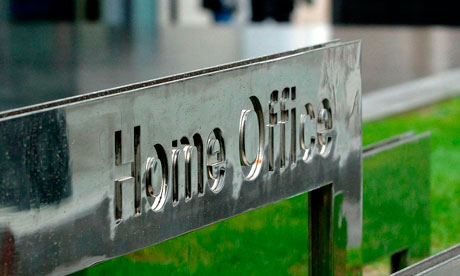Ability is dictated by what we need to succeed. A chimp would fare better than me in a jungle – that doesn't make it smarter

'How can a test accurately measure something when there is no certainty as to what is being measured?' Photograph: Nick Potts/PA
A recent study has shown that footballers can perform better than PhD students on certain cognitive tasks. This is being interpreted in the mainstream media as evidence that footballers are smarter than PhD students. While this is something of a considerable extrapolation, it is a perfect example of how our views and ideas about what counts as "intelligence" are a lot more flexible than most would think.
Scientifically, there is no real consensus per se on what intelligence can be accurately defined as. IQ tests may seem like an obvious way to assess intelligence, but in psychology their use remains controversial. How can a test accurately measure something when there is no certainty as to what is being measured? When you've got demonstrating that intelligence is dependent on working memory capacity, or arguing whether it's supported by singular or multiple processes, you need to be reasonably intelligent to keep up with the varying theories about what that even means.
Intelligence is also strongly influenced by culture. What's considered smart in one culture could well be considered foolish in another. We are all guilty of this bias to some extent. In the UK, a detailed knowledge of science is considered intelligent by many, whereas a detailed knowledge of football usually isn't. But there's nothing to say someone's football knowledge isn't just as or more complex and diverse than someone's knowledge of science. But football is everywhere, you don't need a degree to know about it, children play it all the time – so an in-depth knowledge of it is, perhaps unfairly, not considered an achievement.
Of course, knowing a lot of detailed information about something is only part of intelligence. It's also important to consider how this information is used. This division is referred to by some as crystallised and fluid intelligence, or information you retain and your ability to use it, respectively. Think of it like a computer: you've got your hard drive (data storage) and your processor (data usage); you need both to create a truly useful device.
This is reflected in changes to the structure of the brain, as the brain adapts and dedicates more resources to this constantly occurring demand. Therefore, it shouldn't be surprising that professional footballers would be better at certain mental abilities than non-footballers.
Whatever you think of the sport, a professional football match is undoubtedly a challenging context to be in. With so many variables to consider in a constantly changing scenario, it would be hard enough to keep on top of without thousands of people screaming at you for various reasons. Footballers have to be able to do this if they wish to get to the top of their field, so of course they'd perform better in tests that assess rapid thinking, attention and any other ability that isn't so crucial for other disciplines.
Footballers are stereotyped as being a bit thick, based on their unrefined behaviour and lack of social/cultural awareness. But these things haven't exactly held them back, so why would they have learned otherwise? Our abilities and skills are largely dictated by what we need to do in order to succeed. A chimpanzee would be far better equipped than I to survive in the jungle and would undoubtedly perform better than me in tests that assessed this. Still, I wouldn't let one fill in my tax return.
Perhaps intelligence is the wrong term to use, perhaps it would be fairer to say footballers and PhD students have differing mental abilities. But which of these abilities is considered "intelligent" seems to be a lot more subjective than most people realise.

